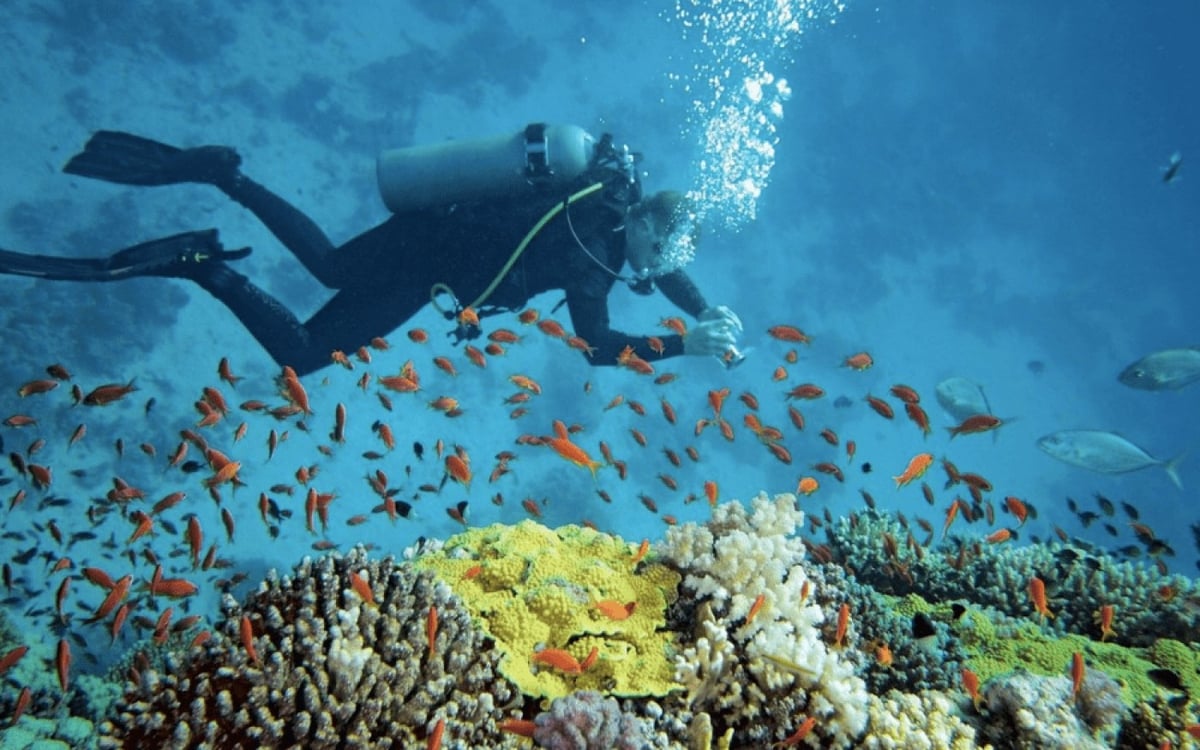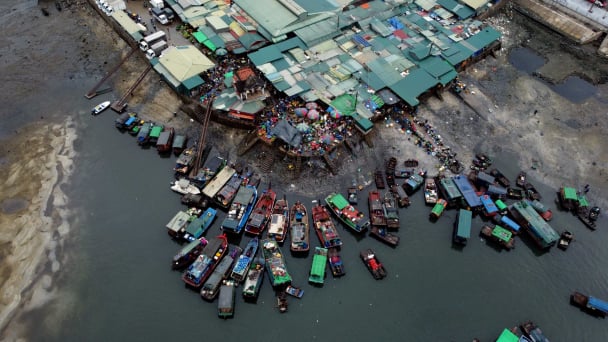August 31, 2025 | 13:36 GMT +7
August 31, 2025 | 13:36 GMT +7
Hotline: 0913.378.918
August 31, 2025 | 13:36 GMT +7
Hotline: 0913.378.918
This is an alarming sign for the marine ecosystem of South Central Vietnam and the tourism appeal of one of the most beautiful bays in the world.
Satellite imagery analysis and machine learning over an area of 160 km² reveal that the coral reefs around Hon Mun, Hon Mot, Hon Mieu, Hon Tre, and Hon Tam islands have suffered the most severe damage. Between 2002 and 2016, coastal infrastructure development such as the construction of ports, coastal roads, and resorts leading to the disappearance of 125 hectares of coral reefs.
Several other factors have continued to push coral reefs into prolonged decline: land-based pollution, illegal fishing, outbreaks of crown-of-thorns starfish, seawater temperatures exceeding 30°C causing coral bleaching, and the impacts of 32 storms over the past two decades.

Nearly 200 hectares of coral reefs in Nha Trang Bay have been lost, posing a significant threat to marine tourism. Photo: Minh Hoang.
According to scientist Mai Thuan Loi from the Center for Sustainable Tourism Research and Development, University of Social Sciences and Humanities in Ho Chi Minh City, the loss of coral reefs directly affects marine biodiversity and threatens the sustainability of scuba diving tourism, which is a signature attraction of Nha Trang. "If the underwater experience no longer matches the advertised images, especially for international visitors, they will be disappointed and less likely to return," Loi warned.
Notably, despite various conservation efforts by the Nha Trang Bay Management Board such as closing off the Hon Mun sub-zone, collaborating with the Institute of Oceanography to conduct surveys and restoration, ecosystem monitoring with volunteers, replanting mangroves, and building coral nurseries, the pace of recovery remains slow. Hard corals grow at a rate of only about 1 cm per year.
Hon Chong is a rare bright spot, with coral developing well and an average coverage rate reaching 32.4%. However, the Nha Trang Bay Management Board also acknowledges that conservation efforts still face numerous challenges, including a lack of cross-sector coordination mechanisms, limited public awareness, and insufficient financial resources to support long-term activities.
Experts point out that aside from climate change, the lingering impacts of poorly regulated human activities in the past such as improper anchoring, unregulated diving, and direct wastewater discharge into the sea continue to severely damage the coral reef ecosystem.
"Restoring coral reefs cannot be done in just one year. It requires a patient, synchronized process that prioritizes conservation above all," emphasized Mr. Loi.
Translated by Kieu Chi

(VAN) Vinod Ahuja, FAO Representative in Viet Nam, affirms that Vietnam's success lies not only in its abundant national reserves but also in increasingly diversified value chains and enhanced competitiveness.

(VAN) Vietnamese engineers have mastered technology, successfully manufacturing an automatic system for environmental agricultural monitoring and measurement, aiming at the dream of 'robotization'.

(VAN) Reducing fishing, increasing aquaculture and conserving the sea open an inevitable path that both ensures livelihoods and preserves the blue sea, bringing Vietnam's seafood to the global stage.

(VAN) Over the past 80 years, the food sector has walked alongside the nation, from shared jars of rice during the resistance to ships carrying Vietnamese rice brands across the five continents.

(VAN) Vietnam’s geology sector has marked its presence through achievements in mineral surveying and exploration, affirming the country’s resource potential and contributing to sustainable development.

(VAN) The Viet Nam Institute of Meteorology, Hydrology and Climate Change Director shares insights on 80 years of the sector’s achievements, its role in disaster forecasting, and messages for the younger generation.

(VAN) VAN News cordially introduces the message from Mariam J. Sherman - World Bank Division Director for Viet Nam, Cambodia and Laos - about the Viet Nam's 80-year journey of development.